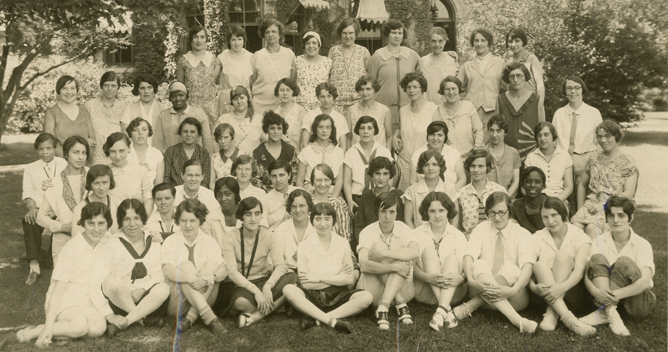Project Continua: Female Biography for the Digital World
Speaker Bio
Gina Luria Walker is Associate Professor of Women's Studies at The New School where she teaches Women's Intellectual History. She is editor of the Chawton House Library Edition of Mary Hays's Female Biography (1803), the lives of 300 women, to be published by Pickering & Chatto (2013, 2014). She has assembled a global collaborative of 150 scholars and researchers, representing 106 institutions in 18 countries and four continents, to annotate Hays's 300 "female biographies," using a private website for scholarly interactions. Project Continua, a public website, emerges from the rich scholarship being produced that demands ongoing, expanded collaboration.
Koren Whipp is an MA student in Historical Studies at The New School for Social Research in New York City. She is Deputy Director and Web Producer for Project Continua, and Project Manager and Web Producer for The Female Biography Project, a global collaborative of scholars and researchers producing the Chawton House Library Edition of Mary Hays's Female Biography (1803). Her research focuses on Early Modern Women’s History and Enlightenment.Abstract
Scholarly efforts to recover the important contributions of earlier learned women have intensified with inspiring yet challenging results. Lack of interconnectivity among scholars in the Humanities, routinely separated by academic disciplines and geography, has impeded their ability to build on one another's findings and to make connections among the women they study. Online interaction and digital dissemination are key to addressing these dilemmas. Project Continua makes new data about learned women available to the scholarly community at large, cross-disciplinarily, cross-geographically, cross-eras, and through innovative interaction, designed to foster collaboration. Emerging out of the global online network producing the Chawton House Library Edition of Mary Hays's groundbreaking Female Biography (1803), to be published by Pickering & Chatto (2013, 2014), the website will be a dynamic digital archive of the most current, authoritative "female biographies," created by specialists for scholars to consult on learned women and their cultures. Project Continua will incorporate both the new information produced and the changing perspectives on each woman's place in the historical continuum of learned women. Cumulative evidence will allow us to interrogate women's perilous decisions to seek and create knowledge, and to discern better the full significance of their often unheralded production of cultural capital within female networks.
Project Continua: Female Biography for the Digital World
Scholarly efforts to recover the important contributions of earlier learned women have intensified with inspiring yet challenging results. Lack of interconnectivity among scholars in the Humanities, routinely separated by academic disciplines and geography, has impeded their ability to build on one another's findings and to make connections among the women they study. Online interaction and digital dissemination are key to addressing these dilemmas. Project Continua makes new data about learned women available to the scholarly community at large, cross-disciplinarily, cross-geographically, cross-eras, and through innovative interaction, designed to foster collaboration. Emerging out of the global online network producing the Chawton House Library Edition of Mary Hays's groundbreaking Female Biography (1803), to be published by Pickering & Chatto (2013, 2014), the website will be a dynamic digital archive of the most current, authoritative "female biographies," created by specialists for scholars to consult on learned women and their cultures. Project Continua will incorporate both the new information produced and the changing perspectives on each woman's place in the historical continuum of learned women. Cumulative evidence will allow us to interrogate women's perilous decisions to seek and create knowledge, and to discern better the full significance of their often unheralded production of cultural capital within female networks.
